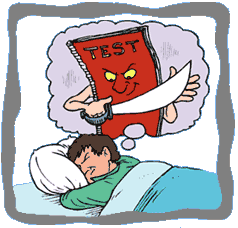
It's really hard to choose my favorite chapter from these wonderful texts. Honestly, I really don't think I had a "favorite" one because what I found to be my favorite was the continuation of the story by more and more nonsensical and fantastic events filled with great characters. However, the chapter on Humpty Dumpty was pretty funny. I loved his lines like "When I use a word... it means just what I choose it to mean-- neither more nor less." The other line I really found to be great was when he said "I can explain all the poems that were ever invented-- and a good many that haven't been invented just yet." Being an English major and spending a great deal of time attempting to make meaning of various texts . In fact, the whole character of Humpty Dumpty sort of seems to be a slap in the face for all of the critics in the world who have the "I'm right, you're wrong" attitude. Also, the character of Humpty Dumpty seems to reveal some sort of relationship between portrayal of self and . In this fantasy world, Humpty Dumpty claims to essentially hold the key to knowing all and being able to create meaning from all of it's various "texts". In the post-modern view of the world in which all "things" are "texts" that are open for "reading", Humpty Dumpty would be lord of all knowledge because of his ability to explain everything ever invented.
The character of Humpty Dumpty reminds me of two guys I worked with this summer. One would always ask a nonsense question like "How many tires fit on the shovel handle in the middle of a rainstorm?" The other guy would always stop what he was doing and provide some answer like "the answer is one-half times the number of pop cans that are in a library covered in red sheets underneath the house of Frodo when looked at in the month of June." Of course the guy who asked the question would always go "that's exactly right!" It really frustrated me for a while because I had no idea what they were trying to get at. After a while I began to participate in creating the questions and providing answers and found it quite enjoyable. When I gave up trying to "find the answer"is when I really "understood" what was going on. What I learned from these guys is that the point of the question was not to arrive at some logical answer, but instead to exercise the imagination and who could come up with the most interesting nonsense answer. I was transformed from Alice, who was concerned with the logic of the whole matter, into someone who found pleasure in ignoring the "rules" of logic and embracing the nonsensical.
Definition for "nonsense"
1. words or language having little or no sense or meaning.
2. conduct, action, etc., that is senseless, foolish, or absurd: to have tolerated enough nonsense.
3. impudent, insubordinate, or otherwise objectionable behavior: He doesn't have to take that nonsense from you.
4. something absurd or fatuous: the utter nonsense of such a suggestion.
5. anything of trifling importance or of little or no use.
*Obviously the dictionary people have no tolerance of fun.
Definitions for "nothing"
1. no thing; not anything; naught: to say nothing.
2. no part, share, or trace (usually fol. by of): The house showed nothing of its former magnificence.
*My favorite 3. something that is nonexistent.
4. nonexistence; nothingness: The sound faded to nothing.
5. something or someone of no importance or significance: Money is nothing when you're without health.
6. a trivial action, matter, circumstance, thing, or remark: to exchange a few nothings when being introduced
Some funny poems I found at http://www.funny-poems.co.uk/kids/humorous-poetry/q07-bud.asp
What Do You Want Bud?
I saw a Buddhist monk today
At a hot dog stand
The cook stood at the griddle
Doing his thing
“What can I make you” was his
Gruff demand
The monk replied, “Make me one
With everything”.
Macho Pursuits
Sliding, slipping, gliding, tripping
If ice skating's too exhilarating
Try cake icing, it's quite exciting
Slapping, slopping, frosted topping.
Is This Art?
Martin Creed or Damien Hirst
Collins, Gormley which one's worst
A pickled sheep in formaldehyde
A light goes on and off inside
The truth about salt and paper crumpled
Painting by numbers and things untitled
A pile of bricks, an unmade bed
Is this art or is art dead?






